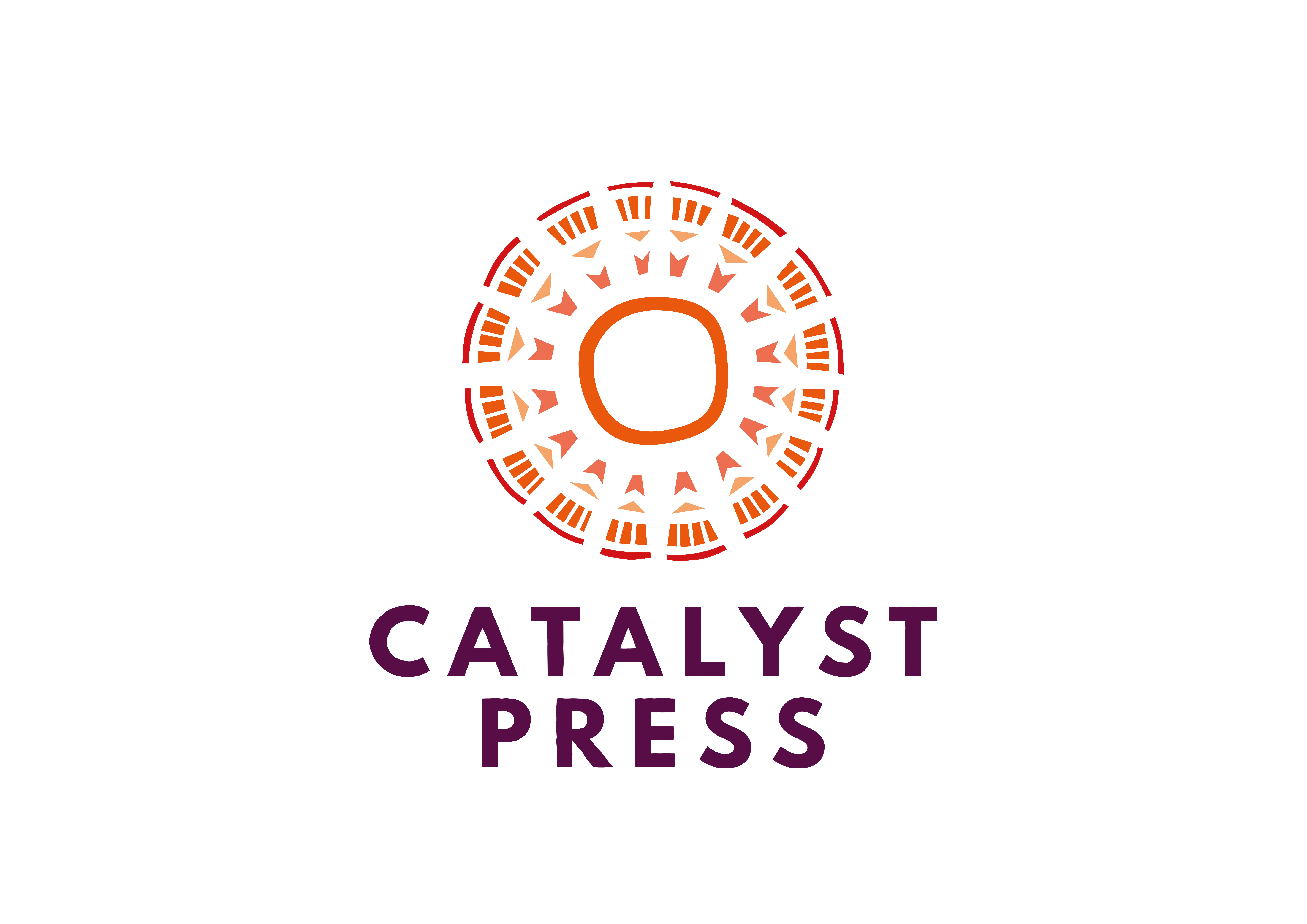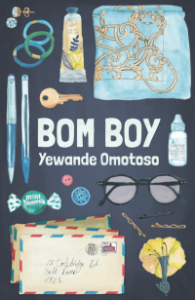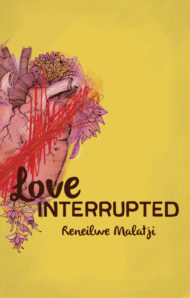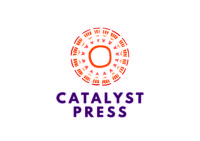Last year was quite a year for Yewande Omotoso. Her most recent release, The Woman Next Door, earned Yewande a spot on the shortlist for the Dublin Literary Award, and a Hurston/Wright Award nomination. We’re betting that readers will want to read more from this talented author in 2019, and so we couldn’t be more excited to be the North American publisher for her novel Bom Boy.
First released in South Africa, this novel of loss and belonging earned Yewande the South African Literary Award First Time Author Prize, and it was also shortlisted for the Etisalat Prize for Literature. She has revised the novel for its North American release on February 26. Pre-order your copy today!
We chatted with Yewande about her process, writers she admires, and what it felt like to revisit to Bom Boy after many years. This Q&A is the full version of the excerpt from our newsletter. Learn about Catalyst events, authors, giveaways, and read more author Q&As like this by subscribing to our newsletter!
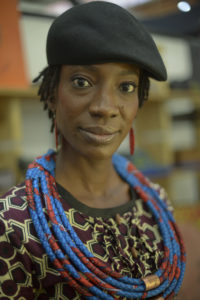
How did you come to writing? Has it always been something you wanted to do?
I grew up in the home of a writer, and I also grew up in the home of serious readers. Both my mother and my father were readers, and my father is a writer. I grew up writing. I have memories of my brothers and I writing plays. I have memories of working on my father’s typewriter, typing something or other, possibly not very good. But the point is, I feel like there was a lot of creating and making in the house, definitely a lot of reading. I remember when I was very young, initially I wanted to be a doctor. Then in my teens it was very clear that I wanted to be a writer.
When we left Nigeria in 1992 and came to South Africa, after I finished school, I told my dad that I wanted to study English because I was going to write in English, and I figured that’s what I had to study to become a good writer. And my father and my mother discouraged me, you know, which parents do and for good reason, and he just said, “Why don’t you study something a lot more solid?” My teachers in school looked at my results and thought something like architecture, which had a technical side to it (I was good at Maths) as well as being creative. So that’s how I ended up studying architecture, but eventually, after working as an architect for many years, I went back part-time and did a Master’s in Creative Writing. My first book, Bom Boy, was, in fact, my Master’s thesis.
How do you approach storytelling? Do you have a plot in mind first? A character?
My approach to storytelling usually starts with character, perhaps the voice. I know from my last book, The Woman Next Door, I could really hear the voice of Hortensia. I could really hear this woman in her 80s upset with the world, hardened.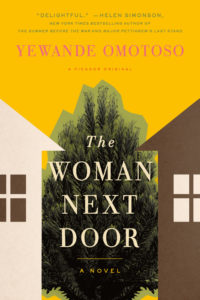
Bom Boy was the first book I ever wrote, the first novel. Before Bom Boy, I had written short stories but I’d never put myself through the paces of writing a novel. As I said, Bom Boy was a thesis, a work I did in the academy with a supervisor. The premise I started with was this idea of a man living on the edge of society, cut away, looked down upon, feared, somebody they might call a misfit. That was really the start of it. It was just this man, and I started to write about him.
I remember there was a point where I realized he was two people, and that was when my character split into Leke and his father, Oscar, and it became these two, a father and son. Leke was the misfit, and Oscar was this enigmatic figure, but the big tragedy would be that father and son never meet and the whole drama around that. I sometimes think that the way I started Bom Boy was a little clumsy, like stumbling around in the dark, feeling the edges of things. In some ways, though, that is perhaps just how I work. I start with a notion, then inspect the notion, deeper and deeper and I keep unravelling, a little bit then a little bit more.
This way of working can be frightening or alarming because I find that I could have spent quite a bit of time on a book and yet not be sure what I’m doing. Oftentimes getting to the end of the book I start to realize (if I’m lucky) what it is I’m doing. That can be frightening because it is a lot of uncertainty as one is working; there isn’t the clarity that I guess I often long for. But there’s also a real sense of excitement, and something I love, love about this way of working is that my own work surprises me even as I’m making it.
Bom Boy was your first novel, so it must have been quite an experience to revisit it. Can you talk a little bit about what it was like to return to it?
Yes, Bom Boy was not only my first novel but I started writing it about 10 years ago. And so, it’s such a funny moment. I’m so grateful to Catalyst Press for reviving Bom Boy, and Leke, and the 10-year-old story. But I’ll be honest, I was horrified at the prospect of having to go back into this book that I’d written, what feels like, so long ago when I was just beginning to try to write. It was very hard to go back to it, to read it— even painful at times— just because I was having to revisit my struggles—my early struggles. I have recent struggles, but Bom Boy is a kind of archive of my earlier struggles.
I was given the opportunity to edit the work and while that was difficult I was relieved that Catalyst was at least open to that. I got the chance to go back to the work 10 years on. I had to restrain myself because I think if I’d really gone crazy, you know, chopped it up, it’d be completely unrecognizable. I had to go back into the work and have some compassion for that Yewande who wrote the book, but also bring my own critique and whatever judgment I’ve learned over the years – ultimately strike some kind of balance. It was a surreal experience.
You’re also an architect. Do you find that the writing worlds and the architecture worlds intersect in any way?
It’s a difficult question. I mean, the simple answer is no. The writing world and the architecture world don’t intersect in the sense that I seldom, in literal terms, get to do both at the same time. There was a time when I was exploring being an architectural journalist, but that never panned out. However, the worlds do intersect, in me of course. They both exist in me, in this one place, and I do feel like when I come to write my stories, I’m writing them as an architect.
I so loved what Arundhati Roy said recently. She is someone I admire deeply, who is also an architect, she said writing is a form of practicing architecture, and I loved her for that. I have practiced architecture for many years, but, you know, I’ve practiced less and less. And yet I feel as if I’m practicing architecture in my writing, and I love how she expressed that thought that I’ve never put words to.
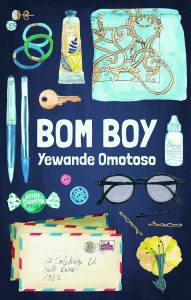 Who are some of your favorite writers/writing influences?
Who are some of your favorite writers/writing influences?
I have many, many writers that have made, and continue to make, such a huge difference to me, to my work. I mean, firstly, they’re writers who are just a joy to read, and then there are also writers (and they’re not always the same people) that inform on my own work inform on what it is I’m trying to do. But one of the first writers that was a huge influence was Toni Morrison. I remember being about 15, and I was in high school and we had to do a project called the special author project, and I chose Toni Morrison as my author. I’d initially chosen Mariama Ba and her beautiful work ‘So Long A Letter’ but we had to pick a writer with at least three works. So what you had to do was read the books by this author and write an essay. I read all Morrison’s books at the time; I read Sula, The Bluest Eye, Beloved, and Song of Solomon, and I can’t remember which others ones at the time, and I wrote up my essay.
Up to that point I had been, what I would think of as, a good student. Diligent, and my marks were fine. But that essay really marked a turning point for me. I was kind of singled out for having written a really brilliant essay. It was new attention. I’m not somebody who had been showered with academic awards up to that point. And I also feel as if it was a seminal moment because I was coming into myself and understanding how much I loved writing and reading to the degree that I perhaps wanted to try and do it myself, so I always remember that. Of course Toni Morrison remains a huge inspiration.
But there are many other writers I admire: Marie NDiaye, Helen Oyeyemi, Sefi Atta, Siri Hustvedt. Writers like James Baldwin, Patrick Modiano, Diane Evans. I remember reading the works of Zee Edgell as a teenager, and George Lamming. I also love the plays of August Wilson. There are writers that come before me such as Ama Ata Aidoo and Bessie Head whose works ring distinct for me, and brave. Too many to mention. I think in some ways it’s an endless list, which is not to render it useless, but to say there are very few books I read that I don’t feel contributed to me either as a person or as a writer, and sometimes when I’m lucky, both. I often find I just can’t name enough names when I’m asked this question. There is also an amazing cohort of writers coming up in the world right now, bold and successful and inspiring. I am frequently in awe.
Is there any advice you’d give to aspiring writers?
In terms of advice, as much as I don’t like to give general advice, I have no issue giving one-on-one advice, and advice tailored to specific scenarios, but I think general advice can be a little dangerous— just a disclaimer. But if pushed to give advice, the safest of the most general advice to aspiring writers is that they read and write. It [seems] incredibly banal, but it really does boil down to that.
I’ve been lucky to have the opportunity to teach and to supervise writers, and I would say one of the things I’ve understood about myself and the writers I’ve encountered is how hard this work is, and how important it is to remember that. Sometimes when we’re working hard we’re sort of incredulous that it can be this difficult, but [it’s important] that we can find joy in this kind of labor, and that we manage our minds. I think a big part of writing is also grappling with what I think of as the ‘psychology of writing,’ all the noise in the head that goes on when you’re daring to make something. And so to aspiring writers: manage your mind; don’t allow the noise to disturb you. On occasions when you can’t stop it from disturbing you, resist the temptation to allow it to triumph.
I think writing can be one of those professions with the potential to humble you. I believe it’s good to allow that, being humble can be helpful. I mostly mean humble towards the mercurial nature of story, this intelligence that lives somewhere out there, outside of me, to which I am deeply engaged. But also I mean humble in the sense that it can be dangerous if you cannot allow comment in— from the right places, of course. And then there’s a whole discussion of what the right place is, but if you are so closed, and so locked, that nobody can inform on your process and possibly provide you with guidance regardless of how accomplished you are, then I think there’s a loss in that. Writing for me has never been simply what I produce. It’s much more alchemical than that.
What’s next for you?
I’ve been working on another novel for quite a number of years now. I’m hopefully at the end of that process and so let’s see how that all turns out.
